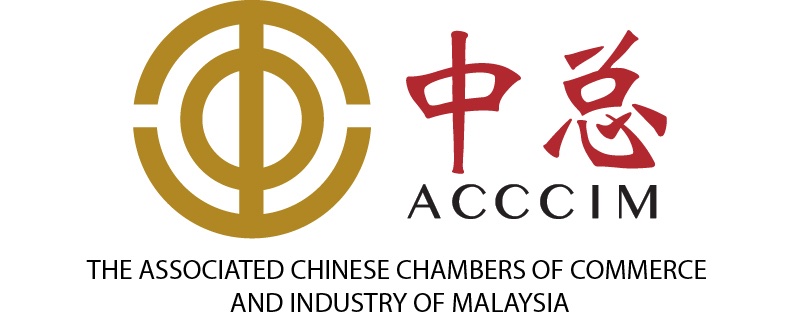5 May 2025: The Associated Chinese Chambers of Commerce and Industry of Malaysia (ACCCIM) welcomes the Government’s preparation, initiatives, and measures to manage the economic and business impact of the US administration’s reciprocal tariffs on Malaysian goods. The chamber has submitted its feedback and proposals to YAB Prime Minister and YB Minister of Investment, Trade and Industry.
ACCCIM President Datuk Ng Yih Pyng expresses delight at the positive response received from the US Government and supports the Malaysian Government’s decision to initiate negotiations through the Ministry of Investment, Trade and Industry (MITI). ACCCIM believes that continued, cordial negotiation between both governments can lead to a fair and balanced trade deal, enhancing market access and reducing tariffs—an outcome that would be highly beneficial for businesses, including SMEs.
To support Malaysian exporters, especially SMEs, ACCCIM backs the Government’s announcement of:
- An additional RM1 billion in Government Guarantees under the Business Financing Guarantee Scheme,
- RM500 million in soft loan facilities by Development Financial Institutions (DFIs), and
- RM50 million additional allocation to MATRADE to help businesses explore new markets.
In addition, ACCCIM proposes enhancing the Market Development Grant (MDG) by increasing the maximum grant amount for participation in international fairs and exhibitions—currently capped at RM5,000 for local events and RM25,000 for overseas ones—to better assist SMEs in expanding their market reach.
ACCCIM also supports the Government’s effort to expand Free Trade Agreements (FTAs), including resuming FTA negotiations with the Republic of Korea and the European Union. These moves are seen as vital steps to broaden export opportunities for Malaysian businesses.
Recognising challenges posed by trade rerouting and “renegade products,” ACCCIM expresses concern over unfair practices that may undermine Malaysian businesses, particularly SMEs. The chamber proposes a multifaceted approach to curb such practices:
- Enhanced customs inspections using risk-based profiling,
- Stricter verification of Certificates of Origin and Rules of Origin,
- Investment in technology such as track-and-trace systems,
- Joint enforcement operations with trading partners, and
- Greater ASEAN-level cooperation on customs enforcement.
To regulate the establishment of foreign entities in the retail sector—where many SMEs operate—ACCCIM recommends:
- Reviewing capital thresholds and foreign investment guidelines,
- Expanding the Negative List to restrict participation in sensitive sectors,
- Introducing stricter conditions including caps on foreign equity and higher minimum paid-up capital,
- Promoting local sourcing and employment, and
- Establishing a monitoring mechanism to ensure new foreign companies contribute positively to the economy.
In light of the uncertain business environment, ACCCIM supports the Government’s decision to defer the expansion of the SST and recommends a minimum six-month lead time for implementation. The chamber also urges the Government to hold back on domestic policy changes that may add cost pressures to businesses, including RON95 fuel subsidy rationalisation, proposed electricity tariff hikes, and a multi-tiered levy.
ACCCIM remains committed to collaborating with the Government and relevant agencies to monitor developments in tariffs and their impact, and to develop swift strategies that safeguard and support the domestic business community, especially Malaysian SMEs.









